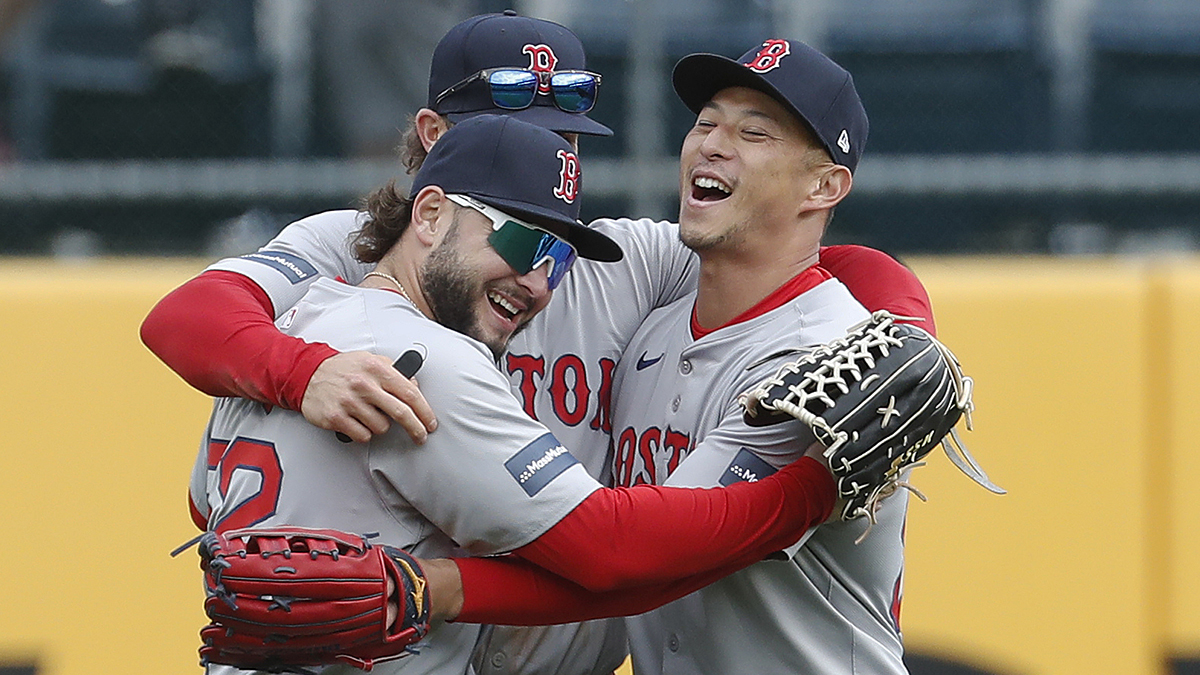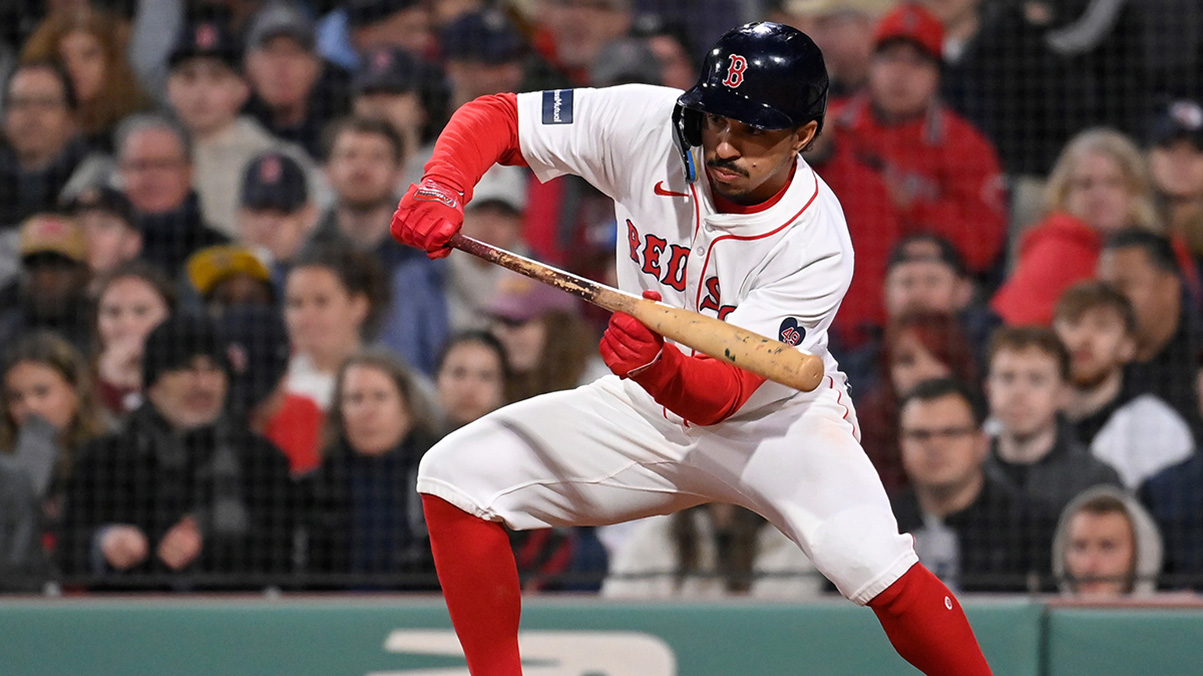CARLSBAD, Calif. — A platform of potentially immense power in baseball appears to often go unused, perhaps more so than in the past.
For those inside the sport, be they players or executives, public avoidance of politics and social issues seems a more common tack than in leagues like the NBA and NFL.
“It’s so combative, and it’s gotten worse,” Yankees general manager Brian Cashman said Tuesday, as elections went on throughout the country. “It’s hard. Just, it’s not easy. So I respect those who do [chime in]. But I also understand those who choose not to.”
- Sox free agents have 'expressed a desire to come back'
- MLB finally addressing sign-stealing
- Kimbrel's agent says closer is 'best of all time'
Baseball, historically, has been tied to tremendous civic and social impact. But these days, anything that may be polarizing or create controversy appears a no-fly zone largely, save for some exceptions. Players and clubs do tremendous charity work and support many causes, but typically, they are causes that are not likely to alienate a portion of fans.
Mookie Betts, for example, may someday be more vocal about issues that move him. We don’t know, at this point, what those are. He might not either, in fact. In a way, he’s acting judiciously and wisely, because he doesn’t want to speak on topics he is not well versed in — a sense of how powerful his words could eventually be as one of the game’s brightest stars.
“Some of it is still learning,” Betts said in a midseason interview. “I haven’t really gotten [into] a lot of issues that are going on, social issues and all those type of things. So yeah, I still learn about it. And some of it is just, pick your battles. I mean, sometimes you can speak on a matter and be OK at it, and sometimes you speak on the matter, if you don’t know, there’s extremists, and no matter what you say it’s going to be wrong. No matter what you say it’s going to be right.
Boston Red Sox
“Those people that, when you’re going to be wrong, you’re going to be so wrong, you get a lot of backlash, and all those types of things. So those are just battles that I’d like to think that, OK, the negative, it won’t be that much negative. It won’t be all the way to the bottom negative.
“Those type of things, when I get to a certain point, I won’t care about that. But right now it’s just, I feel like I’m still building, still building, still building. I feel like I don’t have that platform just yet, and I don’t know a lot about a lot that’s going on. So I try to keep my head out of it. ‘Cause this [baseball] is already hard enough.”
Sox manager Alex Cora this year defended his native Puerto Rico after President Donald Trump made comments that did not sit well with Cora. Earlier in the season, Cora was asked about players speaking out and his own platform.
“I guess that’s the difference between [Michael] Jordan and LeBron [James]?” Cora said. “All depends how comfortable you are. If you’re not comfortable talking about it, obviously, you have your views and everything. But if you’re not comfortable doing it, then you keep it to yourself. I think at the end of the day that’s what guys do, you know.
“There are certain things that, especially back home with the reactions of the people [in Puerto Rico], I didn’t know it was this big. And it is. Like, people paying are attention. There are certain things I feel comfortable talking about it. With this platform, I was able to help everybody, a lot of people down there. We’re still doing it. … Whatever we can do in our power to help, then we’ll do it.”
The difficulties, as Cashman sees them, are “the examples of examples of examples” of backlash and criticism.
“I’m being paid to be general manager of the New York Yankees,” Cashman said. “Have I ventured in at times? Yes. But I try on behalf of myself, my family, my organization to tread lightly. But I have entered the arena on a few occasions, because I did go to high school with the two Supreme Court justices who just recently got in.
“With the knowledge of either going to school directly with them, in [Neil] Gorsuch’s case, or [Brett] Kavanaugh was two years behind me, I supported their letters of recommendation from classmates. But other than that, I choose to duck.”
Players and executives, like anyone else, have free will. There is no obligation here, only a sense of choice.
J.D. Martinez found himself in a brief controversy this year because of an old Instagram post he shared supporting gun rights. The post, from 2013, used Adolf Hitler’s image to show support for gun ownership — an ahistorical suggestion that guns would prevent the rise of someone like Hitler.
Martinez said he meant no offense.
“I love my country. I love this country and I stand by the Constitution,” Martinez said at the time. “And I stand by the Second Amendment and it's something that I take pride in and it's something that I'll back up.”
Asked the day he explained the post if he wanted to use his platform as a player to address politics in the future, Martinez said he did not.
“We come here and we play baseball,” Martinez said. “This isn’t the environment to get into that. I’m a baseball player. That’s how I want people to view me. That’s how I want people to look at me. I’m not here to start a movement or start anything else. I play baseball and I want to win a championship. That’s all I’m here for.”
That is in line with how some fans prefer their sports consumption: separate from everything else in the world, as often as possible. That separation is impossible to maintain permanently, but it can be the wisest business choice for the sport's stakeholders — even if business is not what is driving everyone to their ultimate decision.
But one general manager and one longtime player agent both declined to talk about the matter Tuesday, in a sign of how sensitive people are to even the broad topic of speaking out.
“It’s a double-edged sword, because so many fans are on both sides of every issue,” Astros general manager Jeff Luhnow said Tuesday. “If as an industry you choose to take a side, you’re going to alienate half the people no matter what the topic. I wouldn’t say that players and teams are not active in trying to make our world a better place. But they are not necessarily doing it in a public platform, and using their platform as a general manager, as a pitcher or as an owner to do it.
“But I do see a lot of activity that’s not necessarily visible that players are doing on their own, or other people are doing on their own, our owner [Jim Crane] does on his own. And I think that’s probably better rather than getting into the quagmire of controversial issues. Now, there’s some issues that are black and white. Domestic abuse, racism, those sorts of things. And as an industry, we should be doing everything we can that we’re in a fair society where people are treated well.”
Click here to download the new MyTeams App by NBC Sports! Receive comprehensive coverage of your teams and stream the Celtics easily on your device.


